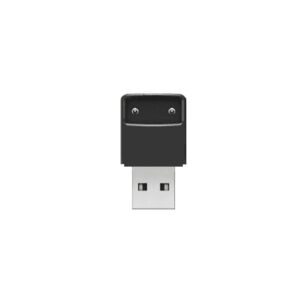How long should a Roomba battery last? If you’re wondering about the lifespan of your Roomba battery, you’re not alone. Many Roomba owners have the same question. The good news is, there is a solution to ensure your Roomba battery lasts as long as possible. In this article, we’ll dive into the factors that affect battery life and explore tips to maximize the longevity of your Roomba’s battery. So, whether you’re a new Roomba owner or a seasoned user, keep reading to find out how to optimize your Roomba’s performance and make the most out of its battery life.
How Long Should a Roomba Battery Last?
If you own a Roomba or are considering purchasing one, you may be wondering how long its battery will last. A Roomba battery’s lifespan is a crucial factor to consider, as it directly impacts the device’s overall performance and usability. In this comprehensive guide, we will explore the topic of how long a Roomba battery should last and delve into related subtopics to provide you with a thorough understanding. Let’s dive in!
Understanding Roomba Batteries
Before we discuss the expected lifespan of a Roomba battery, it’s important to understand the types of batteries used in Roombas. The majority of Roombas are equipped with lithium-ion (Li-ion) batteries, which offer several advantages over other battery technologies. Li-ion batteries are known for their high energy density, longer cycle life, and lower self-discharge rate.
Lithium-ion Battery Lifespan
Li-ion batteries typically have a lifespan measured in charge cycles. A charge cycle is defined as using 100% of the battery’s capacity, whether that is from a full charge to depletion or multiple smaller charges that add up to a total of 100%. The exact lifespan of a Li-ion battery can vary based on various factors, including usage patterns, maintenance, and charging habits.
Factors Affecting Roomba Battery Life
Several factors impact the overall life expectancy of a Roomba battery. Understanding these factors can help you optimize the battery’s lifespan and maximize your Roomba’s performance:
- Usage: The frequency and duration of Roomba usage can affect battery life. Regular, daily use may lead to quicker battery depletion compared to occasional use.
- Surface Type: Roombas encounter different surface types, such as carpet, hardwood, or tile. The type of surface being cleaned can impact the battery’s workload and, consequently, its longevity.
- Obstacles: Roombas navigate around obstacles in your home, and excessive collisions can impact the battery’s lifespan. Frequent encounters with furniture or other objects may result in a higher power draw and faster battery depletion.
- Charging Habits: Charging habits can significantly influence the Roomba battery’s lifespan. It is crucial to follow the manufacturer’s guidelines regarding charging cycles and avoid overcharging or leaving the device plugged in for extended periods.
- Cleaning Schedule: The cleaning schedule you set for your Roomba can impact battery life. A more frequent cleaning schedule may put additional strain on the battery, potentially shortening its lifespan.
Roomba Battery Life Expectancy
The life expectancy of a Roomba battery can vary depending on the model, usage, and maintenance. On average, you can expect a Roomba battery to last between 18 months and 3 years. However, it’s important to note that individual experiences may differ.
Roomba Battery Replacement
If you find that your Roomba battery is no longer holding a charge or its performance has significantly deteriorated, it may be time for a replacement. Fortunately, most Roomba models have easily replaceable batteries. You can purchase genuine replacement batteries directly from the manufacturer or from authorized retailers.
Extending Roomba Battery Life
While the lifespan of Roomba batteries is finite, there are several steps you can take to help prolong their longevity:
- Proper Charging: Follow the manufacturer’s guidelines for charging the Roomba battery. Avoid overcharging or leaving the device plugged in for extended periods.
- Optimize Cleaning Schedule: Adjust the cleaning schedule according to your needs. Avoid excessive use that may put unnecessary strain on the battery.
- Clear Obstacles: Regularly check your cleaning area and remove any potential obstacles that may cause your Roomba to collide frequently.
- Regular Maintenance: Keep your Roomba clean and perform regular maintenance, such as cleaning the brushes and filters. This ensures optimal performance, reducing the strain on the battery.
- Store in Optimal Conditions: If you plan to store your Roomba for an extended period, it’s best to remove the battery and store it separately in a cool, dry place.
In conclusion, the expected lifespan of a Roomba battery ranges from 18 months to 3 years on average. However, individual experiences may vary depending on usage patterns, maintenance, and charging habits. By understanding the factors that influence battery life and implementing proper care and maintenance practices, you can optimize your Roomba’s battery performance and extend its longevity. Remember to follow the manufacturer’s recommendations and guidelines for charging and maintenance to ensure the best possible experience with your Roomba.
Frequently Asked Questions
How long should a Roomba battery last?
A Roomba battery’s lifespan can vary depending on several factors, including usage patterns, charging habits, and the specific model of the Roomba. However, on average, a Roomba battery can last between 1 to 2 years.
What factors can affect the lifespan of a Roomba battery?
Several factors can influence how long a Roomba battery will last. These include:
- Frequency of use: Regular usage can result in faster battery depletion.
- Charging habits: Overcharging or not fully charging the battery can shorten its lifespan.
- Environmental conditions: Extreme temperatures can negatively impact the battery’s performance.
- Battery quality: The quality of the battery itself can affect its overall lifespan.
What can I do to maximize the lifespan of my Roomba battery?
To extend the lifespan of your Roomba battery, consider the following tips:
- Follow the manufacturer’s guidelines for charging and storage.
- Avoid overcharging the battery or leaving it on the charger continuously.
- Clean the battery contacts regularly to maintain good electrical connections.
- Store the Roomba and its battery in a cool and dry place when not in use.
Can I replace the battery in my Roomba?
Yes, most Roomba models allow for battery replacement. When the original battery no longer holds a charge, you can purchase a compatible replacement battery from the manufacturer or authorized retailers.
How do I know when it’s time to replace the battery?
If you notice a significant decrease in your Roomba’s cleaning performance or if it stops running for a shorter time than before, it might be an indication that the battery needs replacement.
What should I do with the old battery from my Roomba?
It is recommended to recycle the old battery following the proper recycling guidelines in your area. Many electronic stores or battery recycling centers accept old batteries for safe disposal.
Final Thoughts
The longevity of a Roomba battery depends on multiple factors, but on average, it should last for about one to three years before requiring replacement. However, the actual lifespan can vary depending on usage patterns and maintenance. To maximize the battery life, it is essential to follow proper charging and storage practices, such as not leaving the Roomba plugged in constantly and avoiding extreme temperatures. Regularly cleaning the battery contacts and keeping the battery updated with software updates can also help extend its lifespan. So, when considering how long a Roomba battery should last, it is crucial to be mindful of these factors for optimal performance and longevity.



